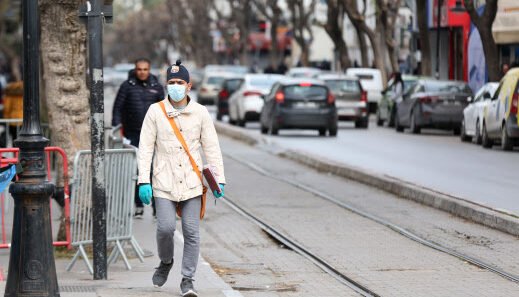After China and Europe, what if it’s Africa’s turn next? To stop the coronavirus, swift action needs to be taken immediately – before Africa’s vulnerable health systems are brought to its knees. Italy realised this too late.
Just three weeks ago, I would never have thought that I’d end up confined, with no ability to leave my home. Internet? I have a limited plan. I can’t watch movies. My only options are books and an old boxy TV set with one channel: Rai 1.
When I mention Rai 1 to Tunisians, they all smile. Our countries are so close that Rai 1 can often be watched in Tunisia, and several people I know learned a few words in Italian from watching the channel’s TV movies.
Three weeks ago, I was in Tunis. Nothing could have been farther from my mind than the coronavirus. I talked about it during my Arabic class when my teacher asked me to cite a current event. “Is it true that a person tested positive for the virus in Italy and they don’t know how the person got it?” “Yes, it’s true.”
My family had told me they were worried: “Have you seen the news? We have 20 cases here. That’s a lot.” I told them that they really didn’t need to panic or exaggerate the danger.
Life needed to go on as usual. Twenty people out of 60 million was hardly anything at all.
Infected people are no longer others, but our loved ones
A few weeks later, I returned to Italy. My departure from Tunis wasn’t planned, but in such bewildering and unpredictable times, I wanted to go home and remain there.
For many, this virus situation is a far-off reality, and I hope it will stay that way. But this isn’t the case for me; for us. The coronavirus has violently entered our daily lives, it has turned them upside down and exposed how were vulnerable and ill prepared.
Infected people are no longer others, but our loved ones. Although the health crisis in Italy has practically spiralled out of control, other countries can avoid this.
But swift action needs to be taken.
No one is protected
The biggest mistake Europe has made is to believe it is untouchable. And Europe waited. Too long.
In no time, Europe was hit with a reality check: the herd immunity approach Boris Johnson pushed for doesn’t work because around 10% of coronavirus-infected patients, including young ones, require hospitalisation.
We’re well aware of this in Italy, where hospitals are beginning to run out of beds. At a certain point, doctors will no longer be able to care for every patient. In some regions, this is already the case. They are forced to choose. How can this be avoided?
Prevention is key
Tunisia, like other African countries, has adopted preventive measures. For the time being, with 171 cases, the situation seems to be under control. However, that doesn’t mean the country should let down its guard or not be extra vigilant.
When returning from an at-risk country, following quarantine rules so as not to endanger others is essential. Unfortunately, not everyone has complied with the rules, including Italians who have at times underestimated the danger.
Rotating work shifts, curfews, excessive hand washing: these measures, just as the halting of flights and ships from European countries, are being enforced to prevent hospitals from becoming saturated.
But will they be enough?
One rule: confinement
It would be great if public hospitals had the capacity to care for all patients. Unfortunately, this isn’t the case and it raises questions about the public policy choices made in recent years.
As one of my Tunisian friends wrote, “decisions to emphasise private medicine dedicated to those who can afford it are going to cost us dearly.” We’re no longer even concerned with whether coronavirus is “just like the flu” or not.
Above all, this is a health system crisis.
So, we need to protect one another. I never imagined that this virus would close in on us so quickly. I turned my back for one second and there it was, right next to me, overnight.
Unpredictable.
And yet I took all the necessary precautions. We often forget that we’re dependent on others.
In Italy, people quickly realised that the government-imposed rules wouldn’t work unless each individual voluntarily made an effort, which by extension became a collective effort. What’s more, to follow an order limiting freedom of movement, people have to trust the institutions enforcing it. That trust isn’t always there.
So, shad darek (شد دارك). Stay home
Without waiting for restrictions from the powers that be, there is just one single approach to combatting the coronavirus: avoiding social contact as much as possible. It’s the only way to deal with an invisible virus; an illness that can be asymptomatic just as it can be deadly. We came to this realisation too late, and now to flatten the coronavirus curve we need time.
But time means more deaths and suffering families.
The virus spreads very quickly and no one can claim to be able to control it. One sick person infects around three people, on average. Italy has gone from 20 to 30,000 infected patients in a span of three weeks. People need to stop their activities before the disease strikes. Don’t make the same mistake: act immediately.
Coronavirus is no longer spreading in China; it has struck the heart of the Mediterranean region. No one – whether in the north or south – is out of harm’s way.
Source: TheAfricaReport

